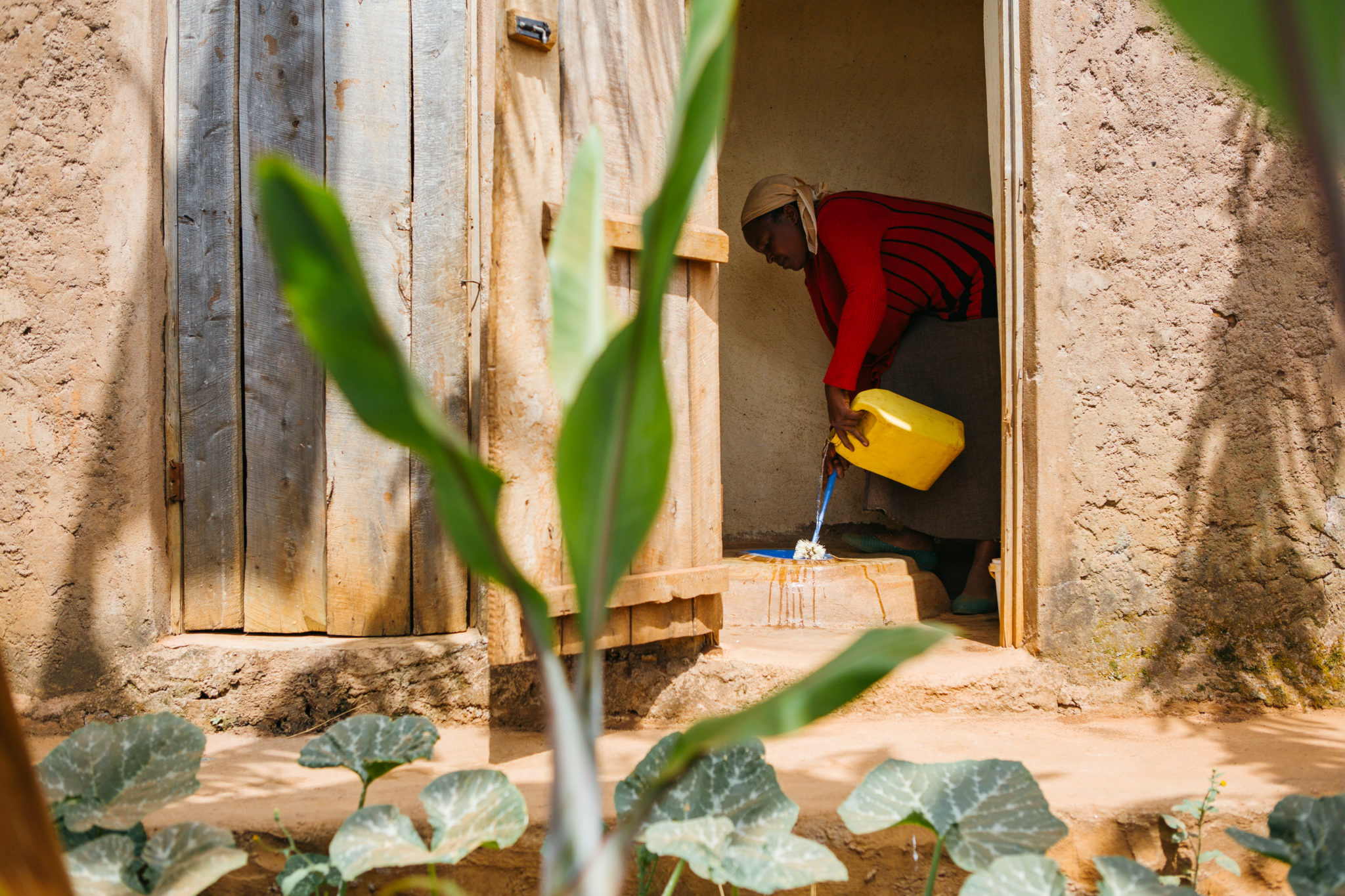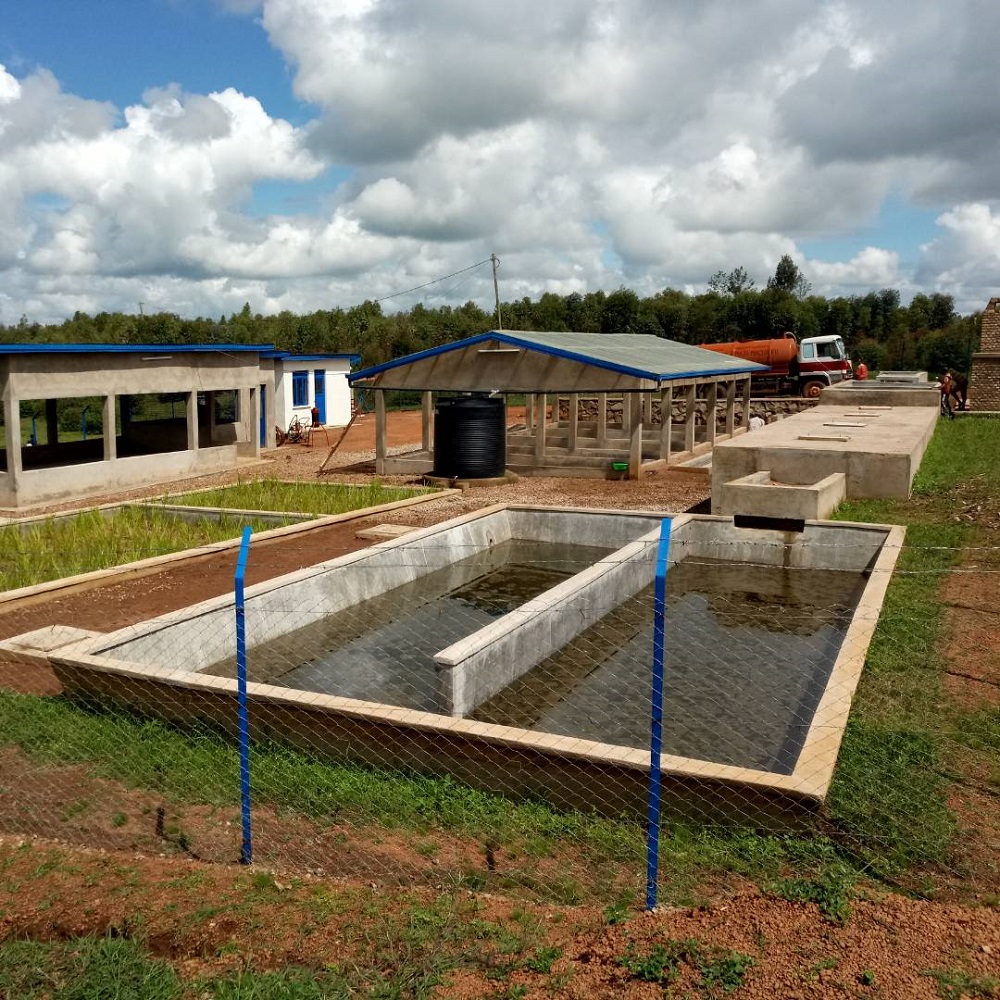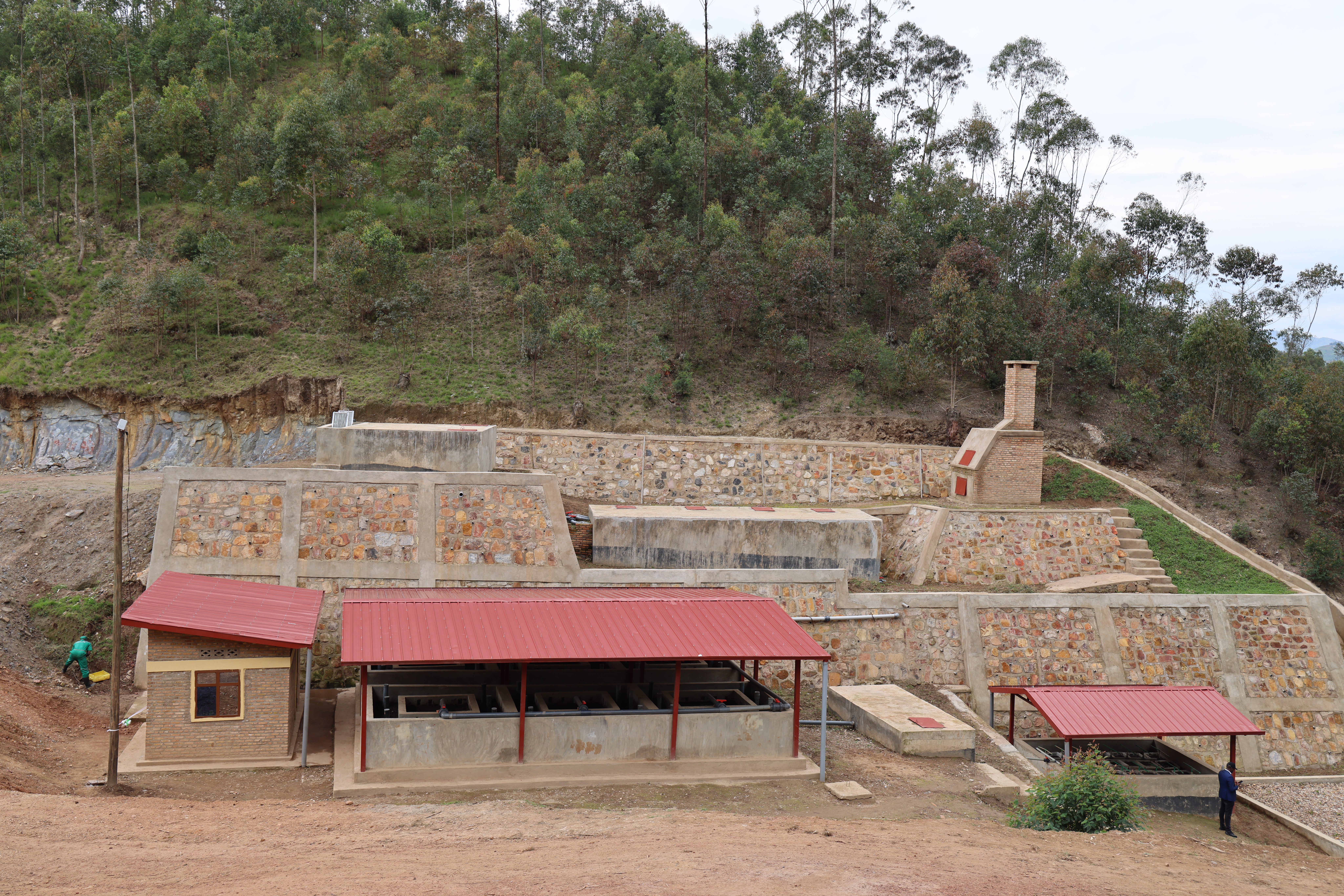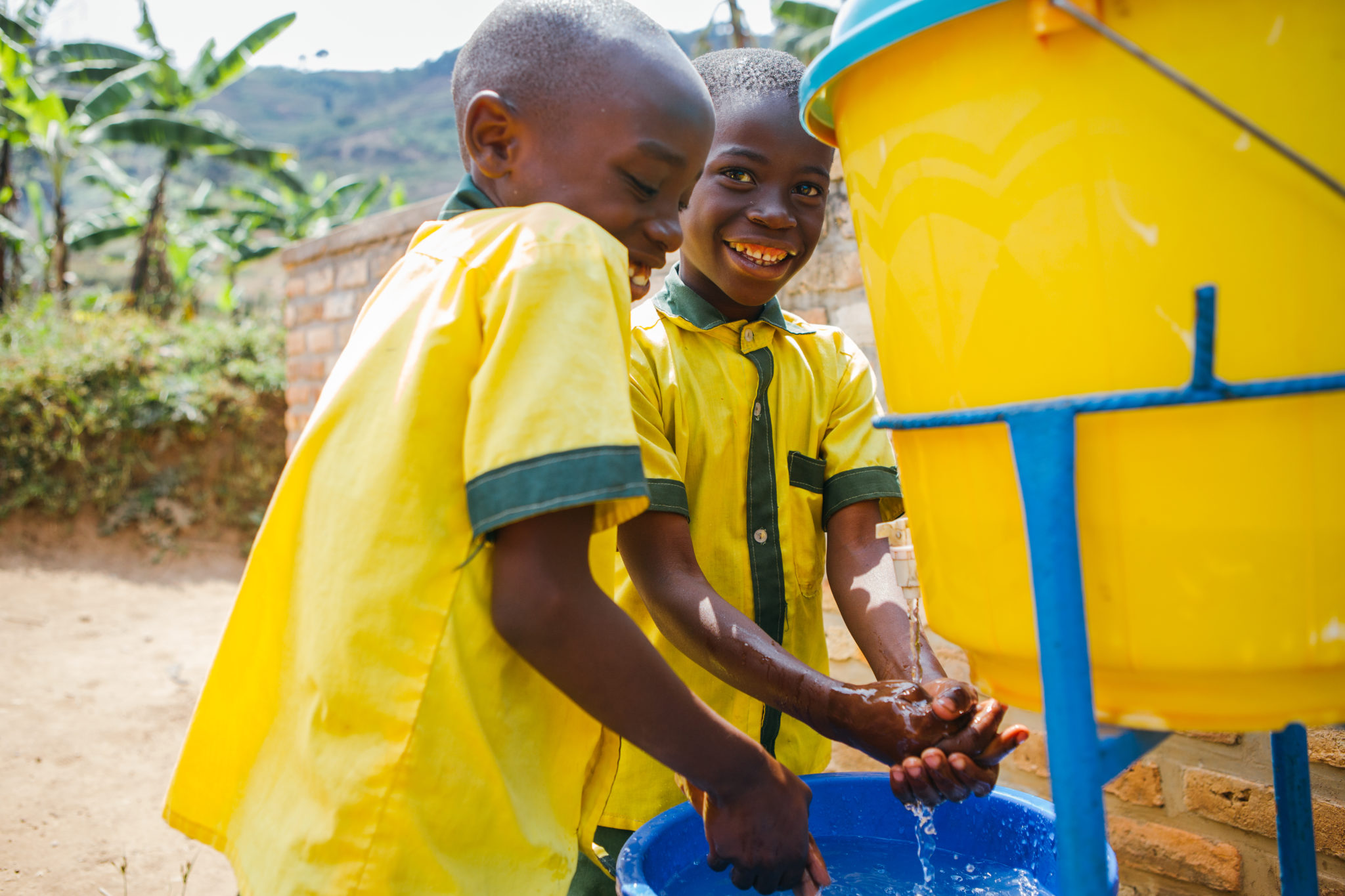Sustainable Sanitation

The importance of safe sanitation
A toilet isn’t just a nice luxury. It’s a necessity for a dignified, healthy, and safe life. Having a toilet and safely managed sanitation services improves community health by eliminating preventable waterborne diseases like cholera and diarrhea.
A good household toilet improves safety, since it can be dangerous to find a place to go outside — especially at night, and especially for women and girls.
THIS IS HOW WE DO IT
We believe the best way for families to gain access to better bathrooms is through sanitation businesses. We don’t give away toilets — that’s not sustainable.
Instead, Water For People has been facilitating Sanitation as a Business in Rwanda.
- In rural areas, Water For People is sensitizing households to the need for improved sanitation services through household meetings, hygiene and sanitation campaigns, and support of community hygiene and sanitation clubs.
- We encourage families to take affordable sanitation loans to build or renovate their toilets.
- We work with finance institutions, including commercial banks, micro-finance institutions (MFIs) and Savings and Credit Cooperatives (SACCOs) to encourage them to add sanitation loans to their portfolios. This enables customers to borrow money for sanitation improvements and pay it back over a period of time at an affordable interest rate.
- We help build the capacity of local entrepreneurs to provide bathroom construction services to families.
Sustainable Waste Management
E-VAC: Water for People Rwanda explores various waste emptying technologies used in other countries, and has created closed pit emptying equipment called "E-vac." E-vac is becoming widely accepted by Rwandan households to solve their problems emptying their pit latrines, especially in places which are difficult to reach by emptying trucks.
GICUMBI DEFAST: In Gicumbi District, Water For People helped introduce the country’s first Decentralized Fecal Sludge Treatment (DEFAST) Plant, which treats raw sewage and turns it into fertilizer. The DEFAST plant serves over 15,000 households, universities and schools, a prison, hospitals, and health centres.
NYAMAGABE DEFAST: The Nyamagabe Decentralized Fecal Sludge Treatment plant (DEFAST) is the second such facility in Rwanda and was completed in December 2021. It has a capacity to treat 10 cubic meters of faecal waste per day. The Plant was built as part of a partnership between the World Food Program, the UNHCR, Water For People and Nyamagabe District. The DEFAST Plant supports the district’s efforts to improve the welfare of the population, particularly those in Nyamagabe town and the refugees in Kigeme Camp, through access to safe sanitation, proper disposal and management of fecal sludge, as well as producing cooking briquettes as eco-friendly and safe alternatives to biomass, and bio-fertilizers for use in agriculture.
RULINDO VERMIFILTRATION PLANT: The Rulindo Vermifiltration Plant is a unique plant that uses natural processes and tiger worms to treat faecal sludge into organic manure. The plant, completed in September 2022, has a capacity to treat 10 cubic meters of waste per day. It was established thanks to a partnership between the district authorities and Water For People. It is the first fecal sludge treatment plant that uses tiger worms to manage fecal waste



Hygiene Education
While water and sanitation infrastructure are important, people must also understand the importance of using it. Behavior change and education about safe hygiene practices are included in all our interventions. At the community level, our hygiene work includes social art performances that motivate hygiene behavior change. In schools, we create forums for discussions among students and educators through School Hygiene Clubs. We make sure schools have hand-washing stations and toilets, and we support menstrual hygiene management, so girls have the education and resources they need to stay in school when they get their periods.

